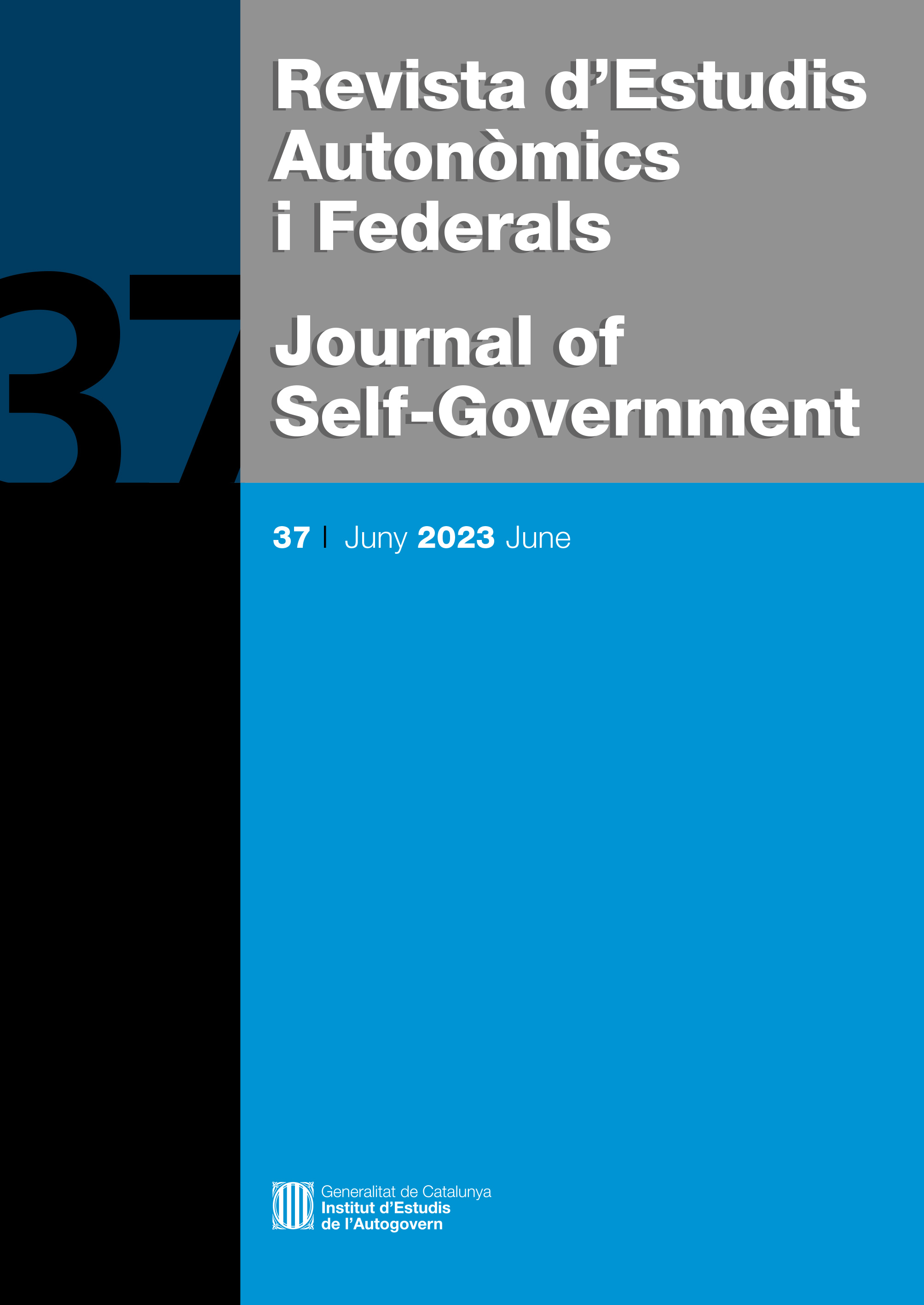Climate change, energy transition and territorial decentralisation in Spain
Article Sidebar

Main Article Content
The article provides an overview of the Spanish legal system in terms of climate change legislation and the regulatory framework of the so-called energy transition. The configuration of the Spanish State as decentralised makes it necessary to allow the Autonomous Communities, as infra-state entities, to develop their own policy to fight climate change. The article thus explores the opportunity and advisability of adopting a multilevel model of relations between the State and the Autonomous Communities, in accordance with the European Union’s climate neutrality requirements, and one that goes beyond the usual model of limited inter-administrative relations, based on the principle of coordination. First, the article deals with the basic State legislation on climate change and energy transition, with the aim of evidencing that the Autonomous Communities are necessary actors for the development and implementation of this framework. Second, it aims to provide an overview of what has been done so far by the Autonomous Communities. The article concludes with various reflections on the effectiveness of this decentralised model, insisting that its application is undeniable given that mitigation and adaptation actions have a territorial component that legitimises the intervention of infra-state entities.
Article Details
(c) https://presidencia.gencat.cat/ca/ambits_d_actuacio/desenvolupament_autogovern/institut-destudis-autogovern/publicacions/reaf-jsg/0